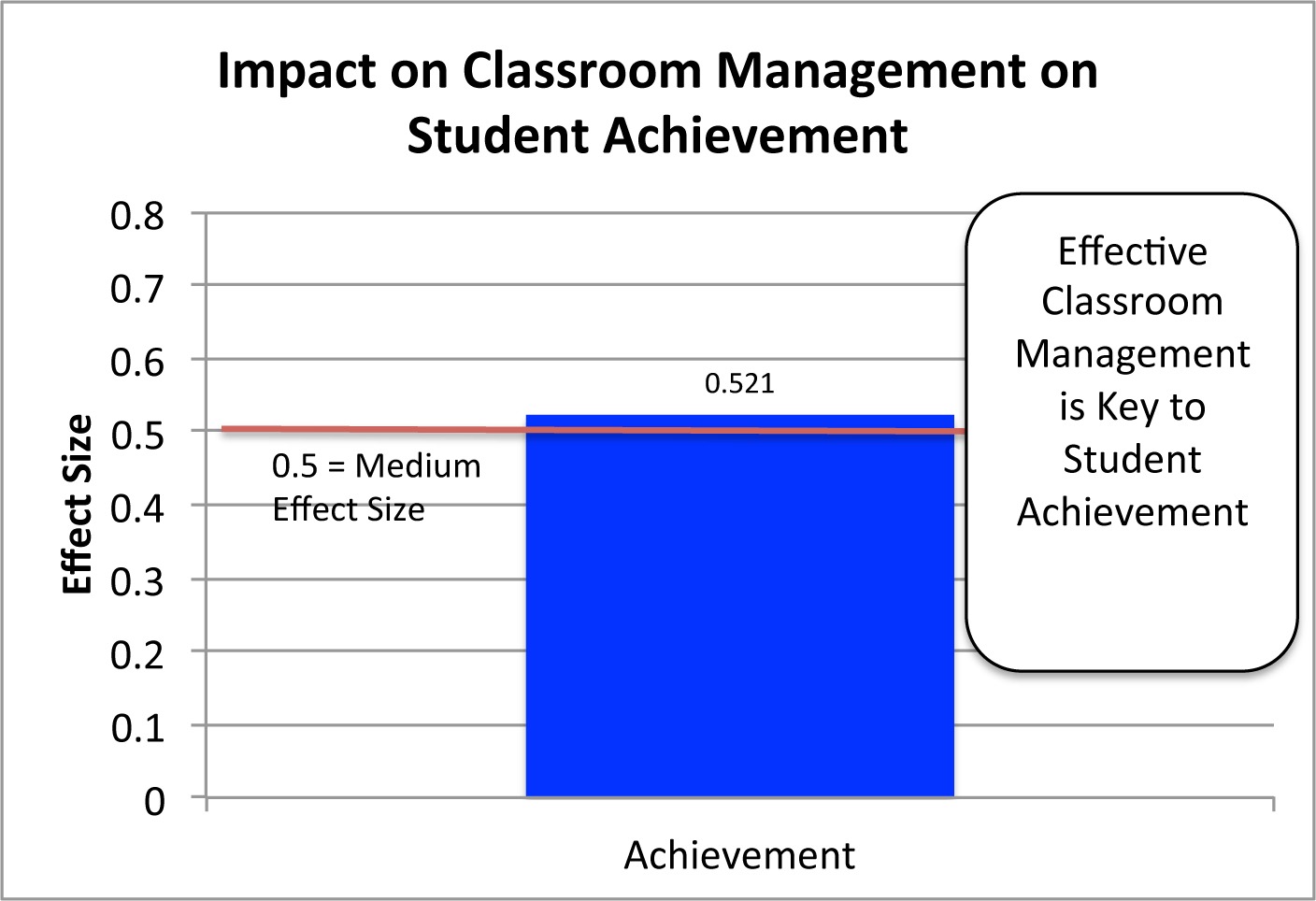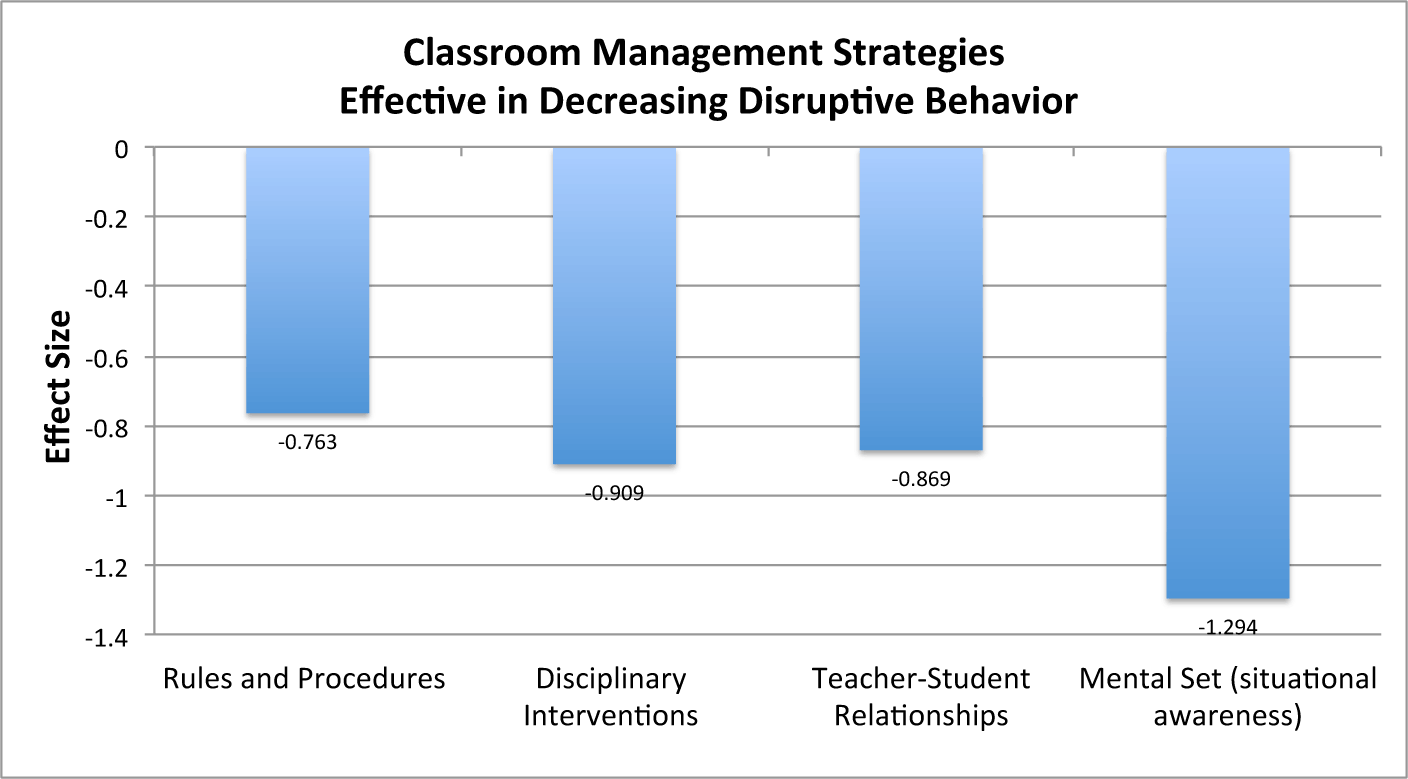How important is classroom management in improving student achievement?
Why is this question important? It is common knowledge among teachers that classroom management is an essential skill for teacher survivability and student success. Unfortunately, common knowledge isn't always accurate and educators must verify hunches with objective research. Research conducted over the past 30 years confirms that classroom management is truly a core ingredient of effective teaching. Effective classroom management's effect on student success has been determined to be one the most powerful skills teachers need to master their vocation.
See further discussion below.


Result(s): The overall impact of classroom management on student achievement was determined to have an effect size of 0.521. The results were gleaned from research on 553 students in five studies. The research showed a 20% increase in achievement after systematic rules and procedures were implemented.
Four components of classroom management were identified and analyzed in a variety of studies: rules and procedures, disciplinary interventions, teacher-student relationships, and mental set. These studies found that teachers who used effective classroom management strategies had good days and bad days, as is true of any teacher. However, the average number of disruptions in classrooms using effective classroom management was substantially less than in classrooms not employing effective procedures. Over the course of a year, effective management practices resulted in classrooms with increased time dedicated to teaching and an environment more conducive to learning.
- Rules and procedures were examined in research on 626 students in 10 studies. The implementation of systematic rules and procedures resulted in a 28% drop in disruptive incidents.
- Disciplinary interventions were analyzed in 68 studies of 3,322 students. Their use resulted in a 32% decrease in disruptions.
- Teacher-student relationships were reviewed in 4 studies of 1,110 students. Mastery of these relationships brought about a 31% drop in disruptive incidents.
- Mental set was looked at in 5 studies of 502 students. A good mental set resulted in a 40% decrease in disruptions.
Implication(s): Classroom management is commonly listed among the top five critical skills identified by principals and teachers, and its importance is confirmed by research. Given the prominent role of classroom management in determining the success of teachers and students, it is essential that teacher preparation programs address it fully in teacher preservice training.
Author(s): Robert J. Marzano, Jana S. Marzano, and Debra J. Pickering
Publisher(s): Association for Supervision and Curriculum Development (ASCD) Books
Study Description: The Marzano meta-analysis examined 134 effect sizes derived from 100 studies conducted on the topic of behavior management. The studies included in the book are identified by name, type of research design, grade level, general education or special education setting, and type of behavior management intervention. i.e., general, discipline, etc.
Definition(s): Mental set: A keen awareness of disruptive behavior or potentially disruptive behavior and immediate attention to that behavior.
Citation: Marzano, R., Marzano, J. S., and Pickering, D. J. (2003). Classroom Management That Works: Research-Based Strategies for Every Teacher. Association for Supervision & Curriculum Development.
